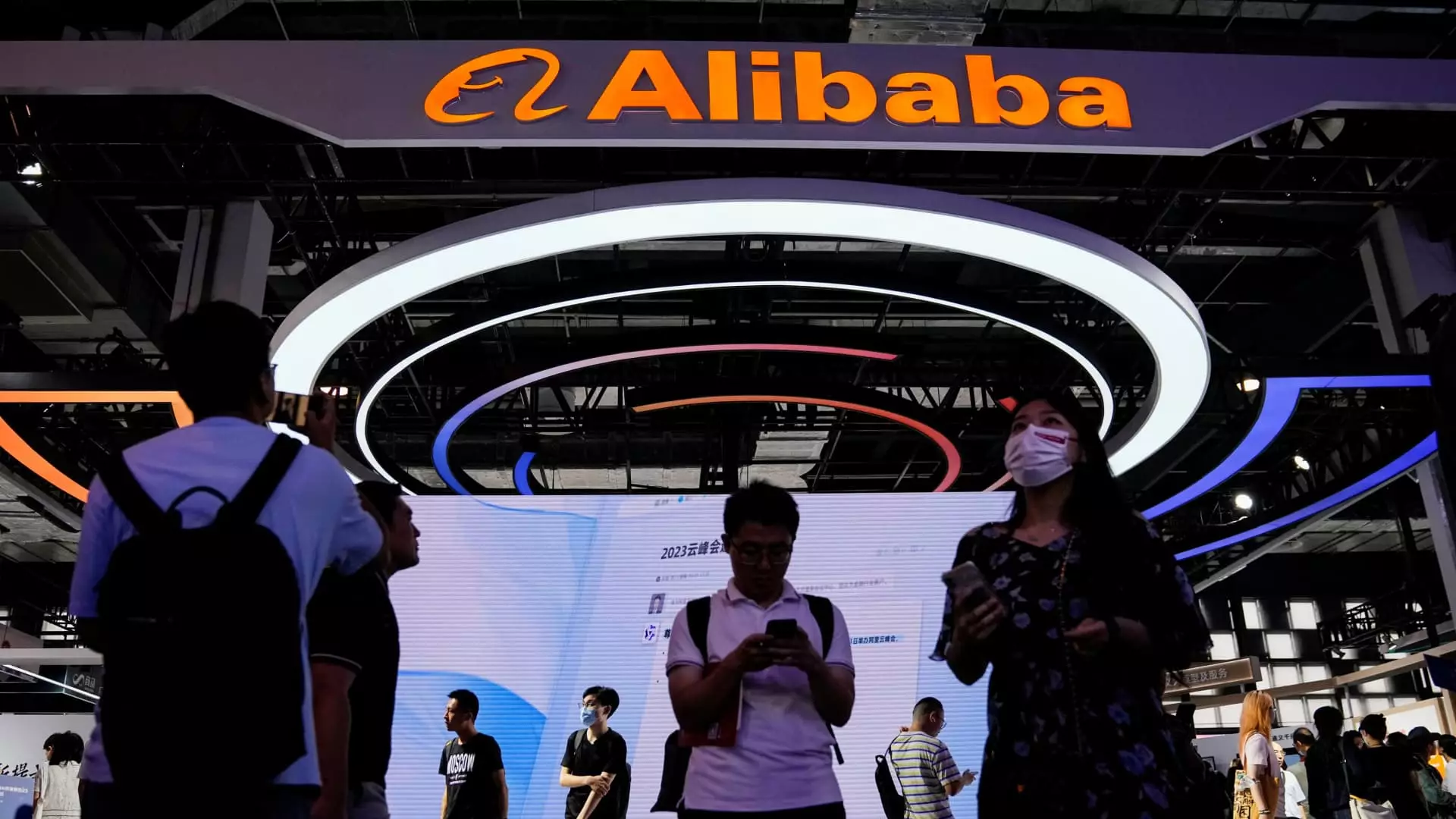The realm of artificial intelligence (AI) is rapidly evolving, and companies are feeling the heat as they vie to position themselves as leaders in this burgeoning field. Alibaba is responding to the stiff competition head-on, recently announcing a staggering price reduction of up to 85% on its large language models (LLMs), particularly focusing on its visual language model, Qwen-VL. This strategic move reflects not just an effort to attract more business but also highlights the intensifying race for innovation among China’s tech behemoths.
On a surface level, the price cuts might seem like a conventional business move designed to stimulate interest in Alibaba’s AI offerings. The company’s cloud computing division, Alibaba Cloud, conveyed the announcement through a WeChat post, emphasizing its commitment to affordability and accessibility within the enterprise segment. While Alibaba’s stock did not see significant movement—closing merely 0.5% higher on the last trading day of the year—this decision signals a broader trend where technology companies must adapt and respond to market pressures. The previous price cuts, including a 97% reduction on the Qwen AI model in May, paint a picture of an aggressive pricing strategy aimed at carving out a significant presence in the rapidly evolving AI space.
Furthermore, this latest reduction on Qwen-VL illustrates a calculated attempt to demonstrate Alibaba’s technical advancements and value proposition in a sector where cost can be a decisive factor for enterprises contemplating AI adoption. The company aims to solidify its footing by offering tools that bridge the gap between textual and visual data, which is increasingly essential for modern applications.
Alibaba’s moves are reflective of an intensifying competition among top Chinese tech companies, including Tencent, Baidu, JD.com, Huawei, and Bytedance. Each of these entities has catapulted into the AI arena, unveiling their own LLMs in hopes of capturing a share of the buzz surrounding the technology. This rush to innovate stems from not just consumer demand but an understanding that AI capabilities are quickly becoming necessary to remain relevant in a fast-paced digital economy.
While many firms are developing LLMs, Alibaba has taken a distinct approach. Rather than joining the consumer-focused race exemplified by OpenAI’s successful ChatGPT, Alibaba is sharpening its focus on serving enterprise-level clients—an area that could yield substantial long-term dividends. The company’s assertion that its Qwen models are now utilized by over 90,000 enterprise customers underscores its deft maneuvering within this lucrative segment.
As Alibaba and its competitors continue to slash prices on AI offerings, a few key implications arise. Firstly, the unprecedented price competition may place downward pressure on the overall market value of AI products. While this can facilitate wide-scale adoption and integration of AI technologies among businesses of all sizes, it simultaneously raises concerns about sustainability. Margins for AI development might shrink, compelling companies to innovate more rapidly to maintain profitability.
Moreover, this price war enables consumers and enterprises to benefit from cutting-edge technologies that were previously prohibitively expensive. Increased accessibility to AI tools can lead to more diverse applications, from automating routine tasks to enhancing data analytics. However, it might also pose risks, such as a decrease in the quality of services or the creation of barriers for smaller companies that cannot keep pace with such aggressive pricing strategies.
Alibaba’s recent price cuts on its AI models represent more than just a tactical business decision; they encapsulate the fever pitch of competition in the tech arena, particularly within the field of artificial intelligence. As the company strives to establish dominance in enterprise-level AI solutions, the implications of aggressive pricing strategies will ripple throughout the market.
As China’s technology landscape continues to morph with innovations and competitive pressures, it remains to be seen how sustained price reductions will impact the quality of AI services and overall market dynamics. Yet one thing is clear: the drive towards AI integration is inexorable, and companies like Alibaba are poised to shape its future through both advancements and pricing strategies.

